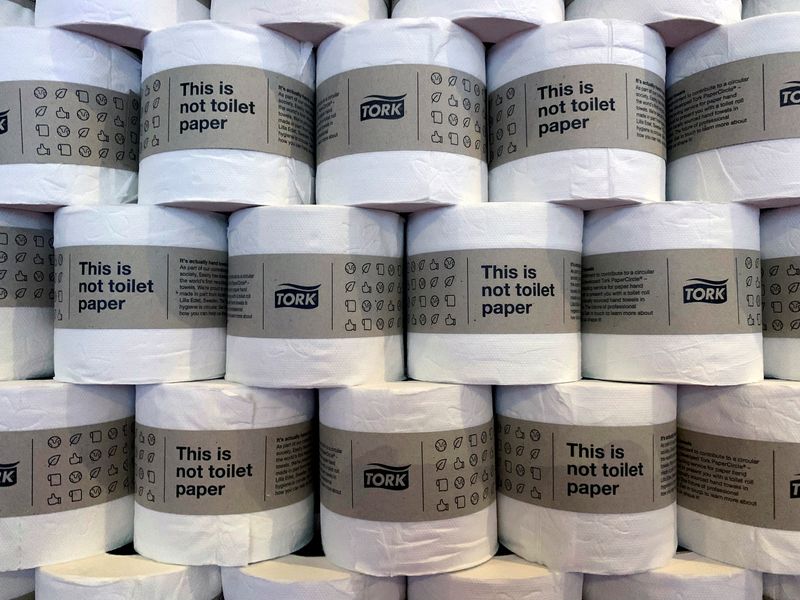STOCKHOLM (Reuters) -Hygiene products group Essity reported a bigger-than-expected drop in fourth-quarter profit on Wednesday and said it planned to further hike prices in the face of record high costs for raw material, energy and distribution.
Operating profit at the world’s second-biggest maker of consumer tissue fell 34% from a year earlier to 2.75 billion Swedish crowns ($297 million) despite an 11% rise in sales. Five analysts polled by Refinitiv had on average forecast a 3.33 billion crown profit.
The Swedish group, which sells consumer tissue such as toilet paper and napkins under a large number of brands including Lotus, Tempo and Vinda, announced plans to raise prices in all product categories and markets this year to compensate for the substantially higher costs.
“We do not expect a decrease in the historically high costs for raw material, energy and distribution in the near term,” Chief Executive Officer Magnus Groth said in a statement.
“Price increases are therefore essential.”
The timing and size of the planned price increases would be managed locally, according to the company, which is also the global leader in hygiene products for businesses with the Tork brand and in incontinence products with TENA.
Its shares were down 3% in morning trade.
Groth told analysts and journalists in a conference call he expected most raw material costs to start to stabilizing in the current quarter, while energy would keep rising significantly compared with the fourth quarter.
Essity, a rival to Procter & Gamble and Kimberly-Clark, proposed a dividend of 7 crowns per share for 2021, up 4% from the year before.
Kimberly-Clark is due to report earnings later on Wednesday.
($1 = 9.2543 Swedish crowns)
(Reporting by Anna Ringstrom; Editing by Subhranshu Sahu and Carmel Crimmins)

























